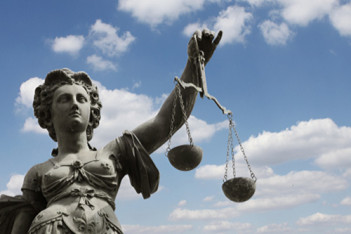lawyer, 23 years of experience in enforcement.
Is the heir obliged to return the inheritance debt?
The problem of debt and its return encompasses many factors and situations. With each new situation there are additional queries and disagreements that need to be resolved. When discussing a specific debt collection scenario, it is important to carefully examine each aspect of the process. This article examines whether a debt passes to an heir with the estate, and explores the various circumstances that can affect this outcome.
Having received an inheritance, the heir receives not only the right of ownership of the property, but also inherits the duties and legal obligations of the deceased. It is not uncommon for an heir to inherit not only property, but also any outstanding debts. The question arises: is the heir obliged to return these debts? We will understand this issue further.
If the debtor dies and the property is inherited, the heirs are responsible for repaying the debt. However, there is a caveat: the creditor's claims can be satisfied only within the limits of the value of the inheritance. The creditor has no right to demand additional payment.
An important consequence of this is that the descendants are not obliged to pay debts from their personal property. In addition, if the value of the inherited property is not enough to repay the debt, the obligation is declared invalid due to the impossibility of its fulfillment.
It is important to keep in mind that heirs are solely responsible for paying penalties or interest that have accrued under a certain scenario, namely when those penalties or interest were incurred by the heir during their lifetime. Any other obligations are recognized as illegal and cannot be transferred to the heirs for repayment.
It is important to note that in certain situations guarantors may be required to assume the responsibility of the new debtor. This happens when the borrower dies and his successor accepts the inheritance with the guarantor's consent to assume responsibility for the debtor. These details should be documented in the surety agreement.
In order to properly resolve disagreements between a creditor and an heir regarding the collection of debts after the death of the debtor, it is extremely important to consider several legally significant factors. These factors include:
When an heir accepts an inheritance, several legal factors come into play. An important factor is the presence and size of the property included in the inheritance. In addition, the guarantor's agreement to assume responsibility for the new debtor, as well as the borrower's compliance with the obligations set forth in the credit agreement, are of great importance. The law also provides that the claim can be submitted to the guarantor within a specified period. As a result, the debt may be transferred together with the inheritance, which will lead to the creation of a new debtor and the application of debt collection procedures. It is worth noting the importance of maintaining a proportional relationship between debt and inherited property.
If you have any questions about the debt collection process and specific stages, feel free to contact the experts of the "Consultant" Legal Service for advice. You will be offered professional legal support in the order of pre-trial dispute regulation or judicial dispute regulation, if necessary, will initiate a case for bankruptcy of an individual, preparation of amicable settlement with the creditor, inform you about the necessary documentation, and help initiate legal proceedings in case of any illegal actions against you. Your unique situation will be carefully assessed and appropriate solutions will be identified to help you in these circumstances.




































